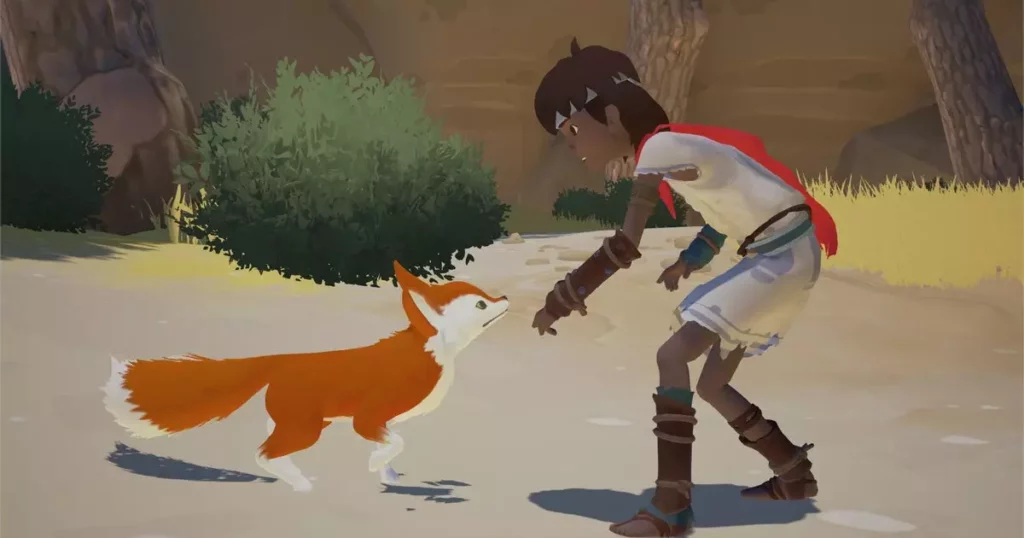Tequila Works, the Spanish game development studio, emerged like a shining star with its stunning debut, Rime. This title was not just a game; it was a vessel for emotional engagement that marries vibrant artistry with deep storytelling. The passion-driven vision of founders Raúl Rubio and Luz Sancho initially garnered widespread acclaim, framing Tequila Works as a beacon of innovation within the ever-volatile gaming sector. However, this initial success often masked the underlying complexities and harsh realities inherent in the gaming industry, particularly the extreme unpredictability surrounding funding. The narrative woven into Rime was captivating, showcasing an artistic ambition that resonated with a diverse audience. Yet, this very success became a double-edged sword, as the studio found itself under immense pressure to replicate this magic in subsequent projects. This isn’t merely a tale of ambition; it’s a cautionary tale reflecting the fragile nature of creative industries where financial sustainability can be as fleeting as a game’s launch window.
Financial Turmoil: The Unforgiving Reality
The once-bright future of Tequila Works dimmed as the studio faced significant financial adversities—an all too common fate in a realm where capital is often as capricious as public interest. The unexpected announcement of insolvency shocked fans and industry veterans alike, dismantling the narrative of a promising future. The fallout from losing key backing, such as from industry giant Tencent, started a chain reaction that led to layoffs and disillusionment amongst staff. It’s fascinating yet tragic how a studio that once thrived on creativity and collaboration devolved into a shadow of its former self, with employees grappling with the turmoil of job insecurity. This behind-the-scenes struggle highlights a fundamental truth: the gaming industry can be incredibly unforgiving to even the most talented developers. The camaraderie that once filled the studio was replaced with a chilling atmosphere suffused with uncertainty—a stark reminder that in the competitive gaming world, stability is often an illusion.
Cancelled Projects: A Tragic Loss of Potential
As Tequila Works grappled with its financial strife, the aspirations tied to various projects began to crumble. Among the most notable was “The Ancient Mariner,” whose description hinted at a rich narrative experience reminiscent of the emotional depth found in Rime. Yet, instead of seeing the light of day, it became another lost opportunity amid the studio’s downfall. Furthermore, concepts like “Dungeon Tour,” aimed to offer a blend of whimsical cooperative gameplay and darker undertones, seemingly embodied the very spirit of what collaborative gaming should strive for: immersive interaction and enjoyment. The absence of these promising titles not only casts a shadow over Tequila Works’ legacy but also begs the question of what innovative ideas are lost when financial realities overpower creative ambitions. The collapse of “Brawler Crawler,” with its promise of dynamic urban storytelling and combat, underscores the fragility of creativity when faced with the harsh realities of the market—a narrative that resonates beyond just one studio, echoing through the experiences of countless development teams struggling to find their footing in this challenging landscape.
The Human Cost: Stories of Passion and Connection
The emotional toll of Tequila Works’ decline spotlighted the human aspect behind game development. Online tributes from former employees revealed the profound connections forged during their struggles and successes. For many, it was not merely a job but a shared journey, a vibrant tapestry woven through collaboration, late nights, and creative victories. The outpouring of heartfelt sentiments serves as a poignant reminder that behind every video game lies a constellation of individuals who pour their creativity, their hopes, and often, their very identities into their work. The words of Rob Yescombe struck a chord—these aren’t just developers or designers; they are artists and dreamers whose stories deserve recognition. This rallying cry extends beyond just Tequila Works; it poses a significant question to the gaming industry at large about how we nurture and support creative talent. It’s clear that the intersection of innovation and economic stability must be navigated with compassion and foresight.
Lessons for the Future: A Call for Change in the Industry
The collapse of Tequila Works stands not only as a case study in failure but also as a critical wake-up call for the gaming community. The auctioning off of their assets offers a sober reflection on ambitions left unrealized. The loss of potential impacts far beyond the studio itself, provoking serious considerations about the support structures for game developers. As the industry continues to evolve, we must advocate for more nurturing, sustainable environments for creativity to thrive. Fundamental questions arise—how should funding be restructured to protect creative endeavors? How can we foster resilience in studios amidst market fluctuations? The narrative of Tequila Works encourages us to rethink the frameworks that underpin our cherished world of gaming, urging stakeholders to prioritize not just profit but the preservation of artistry and innovation. The story of Tequila Works may have dimmed, but its implications for the future of game development could serve as a guiding light for others navigating similar paths.









Leave a Reply